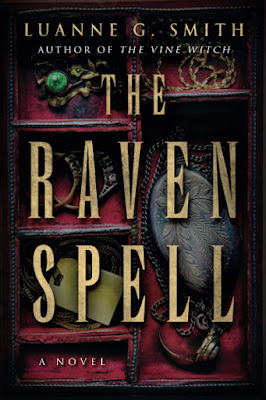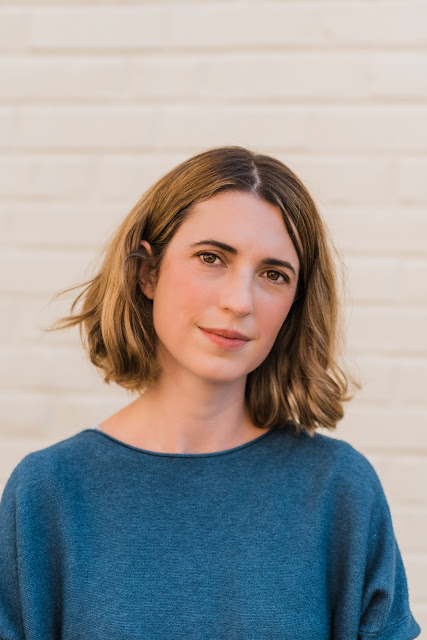Stephanie Wrobel
Stephanie Wrobel is the international bestselling author of Darling Rose Gold and This Might Hurt. She has an MFA from Emerson College and has had short fiction 
My Q&A with the author:
How much work does your title do to take readers into the story?Visit Stephanie Wrobel's website.
The novel grapples with the concepts of fear and pain, so the title is thematically relevant. I hope it intrigues, above all else. I usually start my books with placeholder titles. For this one, it was Wisewood, the name of the self-improvement group that the book is about. It's hard for me to name a book before or while I'm writing it; I usually don't figure out the title until a few drafts in. The other title my editors and I liked was The Fearless. In the end, we chose the viscerality of This Might Hurt.
How surprised would your teenage reader self be by your new novel?
I don't think she'd be surprised at all. Cults have always fascinated me, and this was my chance to build one from scratch. She would be excited to finally get some answers to the questions she has long wondered: why do people join cults? Why do people lead them?
Do you find it harder to write beginnings or endings? Which do you change more?
Endings are harder than beginnings for me. I usually know my twists before I start writing, but there's also the question of when and where to end the story. I prefer a short, crisp ending—some readers would argue mine are too open-ended!—that allows for a "mic drop" moment. My beginnings rarely change in content, only in prose.
Do you see much of yourself in your characters? Do they have any connection to your personality, or are they a world apart?
I can find some piece of myself in most, if not all, of my main characters. In the case of the three narrators of This Might Hurt, I think my friends and family would sayI'm most like Natalie: a perfectionist, organized, responsible, confident. But I think her younger sister Kit is the secret core of me, a side I don't share as readily with others: constantly searching for meaning, anxious, impulsive, restless. Though I share the least in common with Rebecca, I can still find elements that bind the two of us: her ambition and a self-discipline that often comes at the cost of all else.
What non-literary inspirations have influenced your writing?
For this book specifically, I listened to Billie Eilish's When We All Fall Asleep, Where Do We Go? nonstop as I developed Rebecca's character. It wasn't just the music and lyrics; even the sound effects, like the knife scraping in "You Should See Me in a Crown", embodied this character. More generally, there's so much excellent content for a writer to take inspiration from these days. Some recent favorites include Succession, The Lost Daughter, and Hacks.
Learn more about This Might Hurt.
The Page 69 Test: Darling Rose Gold.
My Book, The Movie: Darling Rose Gold.
--Marshal Zeringue










